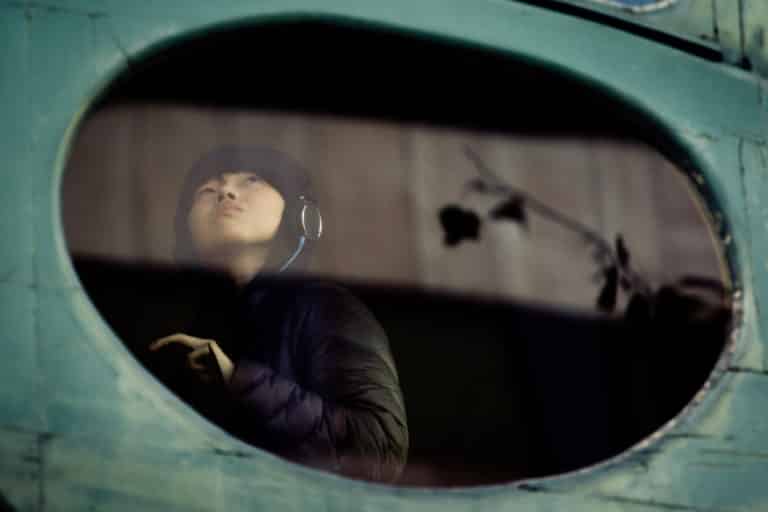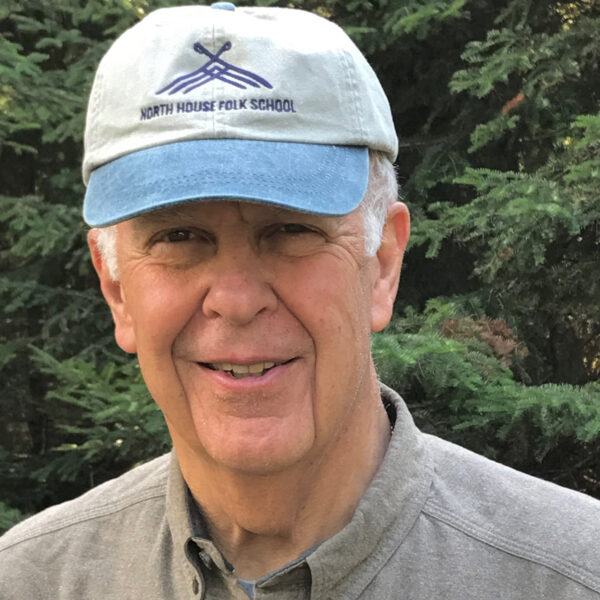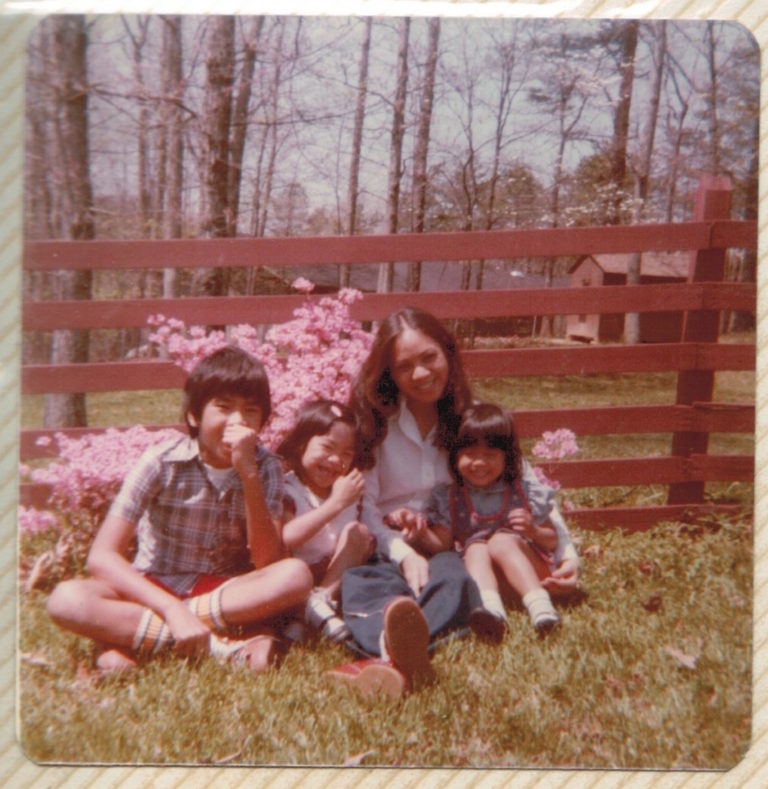
Image by Hernán Piñera/Flickr, Attribution-ShareAlike.
Living From the Inside Out
In May, 2015, I gave the commencement address at Naropa University in Boulder, Colorado. Founded in 1974 by the Tibetan Buddhist teacher Chögyam Trungpa, Naropa merges Western scholarship with Eastern wisdom in a context of contemplative practice. I was grateful for a chance to welcome the Class of 2015 to a world in deep need of their competence and compassion. In this season of graduations, I wanted to share my talk with you.
I have two modest graduation gifts for the Class of 2015. The first is a six brief suggestions about the road ahead of you. The second is a promise to stop talking in about twelve minutes so you can get on that road sooner rather than later!
My first suggestion is simple: Be reckless when it comes to affairs of the heart.
Now, before someone thinks I’m trying to corrupt America’s youth, what I mean is fall madly in love with life! Be passionate about some part of the natural and/or human worlds, and take risks on its behalf, no matter how vulnerable they make you. No one ever died saying, “I’m so glad for the self-centered, self-serving, and self-protective life I lived.” Offer yourself to the world — your energies, your gifts, your visions, your spirit — with open-hearted generosity.
But understand that when you live this way, you will soon learn how little you know and how easy it is to fail. To grow in love and service, you must value ignorance as much as knowledge and failure as much as success. This is ironic advice on a day when we celebrate your success at passing a rigorous test of your knowledge! But clinging to what you already know is the path to an unlived life. So cultivate beginner’s mind, walk straight into your not-knowing, and take the risk of failing and falling, again and again — then getting up to learn again and again. That’s the path to a life lived large in service of love, truth, and justice.
Second, as you integrate ignorance and failure into your knowledge and success, do the same with all the alien parts of yourself.
Take everything that’s bright and beautiful in you and introduce it to your shadow side: let your altruism meet your egotism, your generosity meet your greed, your joy meet your grief. Everyone has a shadow: even Buddhists, even Quakers, even high-minded people like us. Especially high-minded people like us! But when you are able to say, “I am all of the above, my shadow as well as my light,” the shadow’s power is put in service of the good. Wholeness is the goal, but wholeness does not mean perfection — it means embracing brokenness as an integral part of life. As a person who has made three deep-dives into depression along the way, I don’t speak lightly of this. I simply know it is true.
As you acknowledge and embrace all that you are, you give yourself a gift that will benefit the rest of us as well. Our world is in desperate need of leaders who live what Socrates called “an examined life.” In critical areas like politics, religion, business, and mass media, too many leaders refuse to name and claim their shadow side because they don’t want to look weak. With shadows that go unexamined and unchecked, they use their power heedlessly in ways that harm countless people and undermine public trust in our major institutions. If you value self-knowledge, you will become the leaders we need to help renew this society. But if, for some reason, you choose to live an unexamined life, I beg of you: Do not take a job that involves other people!
Third, as you welcome whatever you find alien within yourself, extend that same welcome to whatever you find alien in the outer world.
I don’t know any virtue more important these days than hospitality to the stranger, to those we perceive as “other” than us.
The old majority in this society — people who look like me — is on its way out. By 2045, the majority of Americans will be people of color. Many in the old majority fear that fact. And their fear, shamelessly manipulated by too many politicians, is bringing us down. The renewal this nation needs will not come from people who are afraid of “otherness” in race, ethnicity, religion, or sexual orientation. Because of that fear, our once-vital society is gridlocked and stagnant — and our main hope for renewal is diversity welcomed and embraced.
I recently met a professor who left a predominantly white college to teach undocumented youth in Southern California. When I asked him how it was going, he said, “Best move I ever made. My previous students felt entitled and demanded to be entertained. My undocumented students are hungry to learn, hard-working, and courageous enough to keep moving out of their comfort zones.”
America will be renewed by people with those qualities. And if we who have privilege and power will welcome them, collaborate with them, and help remove the obstacles in their way, 2045 will be a year of promise for all of us.
Fourth, take on big jobs worth doing, jobs like the spread of love, peace, and justice.
That means refusing to be seduced by our cultural obsession with being effective as measured by short-term results. We all want our work to make a difference, of course. But if we take on the big jobs and our only measure of success is next quarter’s bottom line, we’ll end up disappointed, dropping out, and in despair.
Think of someone you respect because he or she lived a life devoted to high values: a Rosa Parks, a Nelson Mandela, or someone known only to a few. At the end of the road, was that person able to say, “I’m sure glad I took on that job because now everyone can check it off their to-do lists”? No, our heroes take on impossible jobs and stay with them for the long haul because they live by a standard that trumps effectiveness. The name of that standard is “faithfulness” — faithfulness to your gifts, to the needs of the world, and to offering your gifts to whatever needs are within your reach.
The tighter we cling to the norm of effectiveness, the smaller the tasks we’ll take on, because they are the only ones that get short-term results. Public education is a tragic example. We no longer care about educating children — a big job that’s never done. We care only about getting kids to pass tests with measurable results — whether or not they measure what matters. In the process, we’re crushing the spirits of a lot of good teachers and vulnerable kids.
Care about being effective, of course. But care even more about being faithful, as countless teachers do — faithful to your calling and to the true needs of those entrusted to your care. You won’t get the big jobs done in your lifetime. But if, at the end of the day, you can say, “I was faithful,” you’ll be okay.
Fifth, since suffering as well as joy comes with being human, I urge you to remember this: Violence is what happens when we don’t know what else to do with our suffering.
Sometimes we aim that violence at ourselves — as in overwork that leads to burnout and worse, or in the many forms of substance abuse. Sometimes we aim that violence at other people — racism, sexism and homophobia often come from people trying to relieve their suffering by claiming superiority over others.
The good news is that suffering can be transformed into something that brings life, not death. It happens every day. I know many people who’ve suffered the loss of the dearest person in their lives. At first, they go into deep grief, certain that their lives will never again be worth living. But then they slowly awaken to the fact that — not in spite of their loss but because of it — they’ve become bigger, more compassionate people, with more capacity of heart to take in other people’s sorrows and joys.
These are broken-hearted people — but their hearts have been broken open rather than broken apart. So every day, exercise your heart by taking in life’s pains and joys. That kind of exercise will make your heart supple, so that when it breaks — which it surely will — it will break not into a fragment grenade, but into a greater capacity for love.
Sixth and finally, I quote St. Benedict — not a Buddhist or a Quaker, but still worth quoting! — who said, “Daily keep your death before your eyes.”
That may sound like a morbid practice, but I assure you it isn’t. If you hold a healthy awareness of your own mortality, your eyes will be opened to the grandeur and glory of life. And that will evoke all of the virtues I’ve named, as well as those I haven’t, such as hope, generosity, and gratitude.
If the unexamined life is not worth living, it’s equally true that the unlived life is not worth examining. So I’ll close with this brief quote from the writer Diane Ackerman who reminds us to live — truly live — our lives:
“The great affair, the love affair with life, is to live as variously as possible, to groom one’s curiosity like a high-spirited thoroughbred, climb aboard, and gallop over the thick, sun-struck hills every day. Where there is no risk, the emotional terrain is flat and unyielding, and, despite all its dimensions, valleys, pinnacles, and detours, life will seem to have none of its magnificent geography, only a length. It began in mystery, and it will end in mystery, but what a savage and beautiful country lies in between.”
Once again, a deep bow to the Class of 2015. To each and every one of you, traveling mercies and blessings as you make the journey from one mystery to the next and the next and the next!

